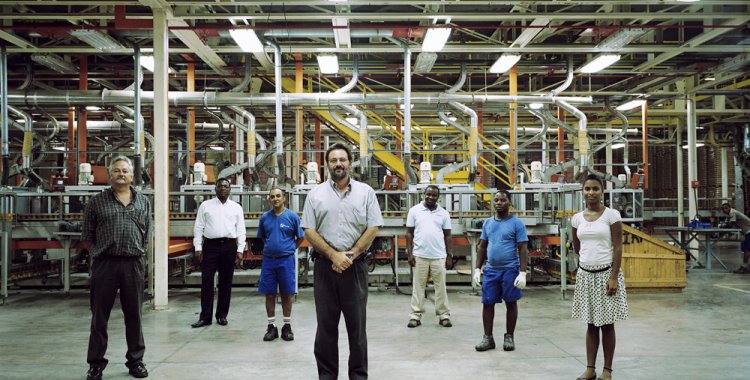The characterization was carried out by a group of national economists at a round table on “The State of the Economy in Angola and its Effects on Other Sectors”, promoted by Oficina do Conhecimento, an organization created in 2008 by young academics with the aim of sharing knowledge.
Carlos Rosado de Carvalho, Rui Malaquias, António Estote and Precioso Domingos were the speakers at the round table, which looked at the state of the country's economy after the drop in the price of Brent's barrel, combined with the pandemic of the new coronavirus.
Speaking at the end of the event, António Estote said that the national economy is now "characterized by a state of emergency, due to the drastic reduction in the price of a barrel of oil, which will require efforts by the Ministry of Finance, especially in terms of expenditure" .
“What we advise the Ministry of Finance to do is to reduce expenses, especially in the freezing of some less priority projects and a real fiscal consolidation in terms of public expenditure,” he said.
The economist stressed that the country is in a structural situation, in a vicious circle of debt, with an excessive rate of public debt.
"And we can also go into 'default', in the fulfillment of debt service, since oil is the only net source of foreign exchange for our economy," he said.
In turn, Carlos Rosado de Carvalho classified the current state of the economy as “very bad”, which “was already bad”.
“And now it was made worse with this Covid-19 thing, then also the war between Russia and Saudi Arabia. We depend a lot on oil, but that is not our problem. Our problem is that we are not able to produce things other than oil and it is not the State that is going to produce goods and services, who are going to produce are the private ones ”, he stressed.
The economist stressed that the role of the State "should be to create conditions" to attract private investments, that is, to create a good business environment.
“This is not happening and in many cases it does not take money to create a good business environment. To fight bureaucracy, money is not necessary, on the contrary, if we fight bureaucracy we even save money ”, he said.
Carlos Rosado de Carvalho also criticized the less correct choices of the Government, namely selecting investment projects that are not a priority, “such as the surface meter, the hospital for managers, car purchases, among others, and which gives wrong signals the population".
“The Government wants to privatize the economy, but in many cases before privatizing it is increasing its weight in the economy, namely that it wanted to sell 25 percent of Unitel and what it ended up doing was buying another 25 percent and now having 50 percent of Unitel, basically ordering Unitel and when ordering Unitel, order BFA ”, he exemplified.
For the economist, the policy that needs to be more focused on creating conditions "so that private individuals can invest and that the State is a strong, but predominantly regulatory State".
Rui Malaquias said that the current situation in the Angolan economy “has a bad outlook”, due to its dependence on oil prices, the main support of the State in public expenditure.
“And if this downward trend continues, which we are seeing - although it has been rising for a few days now - the State would have to review the way it programs its State Budget”, he said.
However, given that it is a cyclical situation, the economist argued that a budget review is premature, considering that it is necessary that “the State remain calm and wait until it sees the next developments, in terms of oil barrel price. , to see if it really fits [the budget] ”.
"The State has to reassure the population, because these things happen, all economies that depend on the price of a barrel of oil are going through the same and it is important to maintain serenity", he stressed.
For Precioso Domingos, Angola no longer had a choice with the current situation, that is, “to look at oil and say that it doesn't even have to make an effort to have money”.
“The Government did not need to be competent to guarantee economic growth, only at the time the merit was not given to whoever had it, in this case oil, commodities, high prices, high production, the merit was of who was in power ”, he pointed out.
The economist stressed that the Government needs to do everything to find other sources of financing for the economy, of economic growth, "taking advantage of the little oil that still exists".
“But at this point, we are at a stage when Angola has not even started to take steps to effectively find other sources of economic sustainability and the situation has worsened, the country has very heavy debt service at that time and Angola needs oil revenues to cope. to that debt service ”, he stressed.
Precioso Domingos stressed that the situation "is very serious", but he drew the attention that "it is not enough for the price of oil to recover for things to be better".
In his opinion, it is necessary that the results are reflected in the transformation of the life of the population and, for that, political reforms are necessary for the sustainability of economic reforms.







